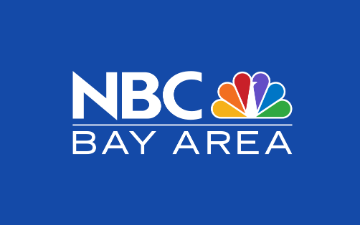A selection of articles, op-eds, TV segments, and other media featuring Ethics Center staff and programs.
The Markkula Center for Applied Ethics does not advocate for any product, company, or organization. Our engagements are intended to provide training, customized materials, and other resources. The Markkula Center does not offer certifications or seals of approval.

The Press-Enterprise reports Hemet’s city council will grant a third public hearing for a controversial warehouse project that councilmembers rejected twice before.
What’s going on in Hemet “illustrates the tension in local democratic governance where we elect people because of their convictions and ideas and then we ask them to act like impartial judges,” said Davina Hurt, Ethics Center director, government ethics.
“The fact that they’re going to a third hearing, the fact that there are recusals — This is for the benefit of the public and it is probably a good thing, although I’m sure if it doesn’t turn out the way the applicants want there may be a continued conversation.”
Davina Hurt, director, government ethics, quoted by The Press-Enterprise.

A San Francisco-based robotics company says the Trump administration has expressed interest in deploying its high-tech robots onto future battlefields reports Senior Investigative Reporter Bigad Shaban from NBC Bay Area.
“I think when we get to arming robots, we get into a much more complex moral area,” said David DeCosse, director, religious and Catholic ethics, who has been researching the ethics of war for the past 30 years.
“Who is responsible for making decisions in which human life is involved?” said DeCosse, who warned that delegating life-and-death decisions to machines risks blurring accountability in combat. “If it's a robot, even a programmed robot, I think that responsibility gets diminished in a problematic way.”
“We have gotten as far as we have in this country by being smart about our defense and also being moral about it,” DeCosse said. “A race to the bottom with these things is not a race that I think as Americans we want to pursue.”
David DeCosse, director, religious and Catholic ethics, quoted by NBC Bay Area.

Grok generated three million sexualized images in just 11 days after its image-editing feature was released. Google and Apple allowed dozens of “nudification” apps in their app stores, but now say they’ve removed some undressing apps, reports The Mercury News.
For companies like xAI, Google and Apple, the availability of undressing apps represents a leadership failure, said Ann Skeet, senior director of leadership ethics.
Reputational hits like the ones they’re taking now erode value in the company,” Skeet said. “They’re actually doing harm to the very entity that they’re responsible for leading.”
Ann Skeet, senior director, leadership ethics, quoted by The Mercury News.

The Oakland finance department has plans to take over parking enforcement from Oakland Department of Transportation (OakDOT). Officials presented their plan at a city council committee meeting on Tuesday.
During the meeting, Michael Ford, who served as parking director until recently, made claims that over the last 10 years, he was periodically approached by “people in power” in Oakland who asked him to fix their parking citations or obtain other parking privileges. Ford says he turned down these requests.
Davina Hurt, director of government ethics, said she found Ford’s claim “shocking.” If his allegations are true, she said, it could mean that an “abuse of a public office for personal benefit” was going on for years.
“ To ask someone to change a parking violation,” Hurt said, “truly undermines equal treatment under the law, that concept that we all share, and it could also demonstrate a broader culture of entitlement and abuse” in the city, she said.
Davina Hurt, director, government ethics, quoted by The Oaklandside.

"Trump’s direct financial ties to Tahnoon are the latest in a growing pattern of conflicts of interest that national security experts and ethics watchdogs worry could mean the president is prioritizing his own financial interests over the public’s," reports The Dispatch.
But as Davina Hurt, director, government ethics points out, conflicts of interest do not require proof of corruption to erode public confidence. “Legality is the floor, and ethics is the ceiling,” says Hurt.
Davina Hurt, director, government ethics, quoted by The Dispatch.

CNET reports:
AI-driven tax strategy uses machine learning and natural language processing to identify tax deductions and share regulatory and compliance information.
Not everyone agrees that AI integration is the best path forward with tax preparation. Many critics have ethical reasons for avoiding its use. A study by the Santa Clara Markkula Center for Applied Ethics found that 82% of respondents care about the ethics of AI.
"Ethics in the Age of AI", a report commissioned by the Ethics Center, "Ethics in the Age of AI," cited by CNET.

Corporate money used to pay for Janani Ramachandran’s Diwali party last October raises questions about conflicts of interest.
Davina Hurt, director of government ethics, says it’s common for elected officials to sit on the boards of nonprofit organizations, but when an elected official takes on a fundraising roles, it can create problems.
“A business owner might think if I don’t donate, then things may be getting more troubling for me, or I may not get the role I want in the city,” Hurt said. “Even if it’s not the official’s intent, the power imbalance is real.”
Davina Hurt, director, government ethics, quoted by The Oaklandside.

NEWSnet Hawaii reports, ethical guidelines to ensure the transparent, fair, and safe use of AI are evolving across industries, and notes that even the Vatican collaborated with the Markkula Center for Applied Ethics to recommend specific steps for companies to navigate AI technologies ethically.
The Ethics Center's Institute for Technology, Ethics, and Culture (ITEC) was referenced by NEWSnet Hawaii.